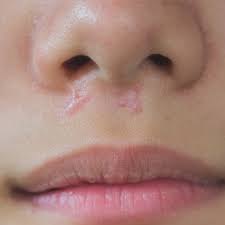Laser treatment is widely regarded as one of the most effective methods for scar removal. It is especially popular because of its precision and ability to target different types of scars, including acne scars, surgical scars, injury scars, and even stretch marks. Here’s an overview of its effectiveness based on the type of scars and other factors:
1. Types of Scars Treatable with Laser
- Atrophic Scars (e.g., acne scars): These are indented scars that form due to tissue loss. Laser resurfacing, particularly fractional Laser Scar Removal Dubai, can stimulate collagen production and smooth out the skin’s texture, making these scars less noticeable.
- Hypertrophic and Keloid Scars: These raised scars occur due to excess collagen production. Pulsed dye lasers (PDL) or Nd
lasers can help flatten these scars, reduce redness, and relieve discomfort.
- Surgical Scars: Fractional lasers are often used to reduce the appearance of scars post-surgery. Over time, they can minimize the scar’s visibility and improve skin texture.
- Stretch Marks: Though not technically scars, laser treatment can also improve the appearance of stretch marks by stimulating collagen growth and evening out pigmentation.
2. How Laser Treatment Works
- Ablative Lasers: These lasers (e.g., CO2 and Erbium) remove the outer layers of damaged skin, promoting the growth of new, smoother skin. They are typically used for more severe scars.
- Non-Ablative Lasers: These lasers (e.g., Fraxel) target deeper layers of the skin without damaging the surface. They encourage collagen production, which can gradually improve scar appearance with minimal downtime.
- Fractional Lasers: A more refined approach that treats only small portions of the skin at a time, leaving surrounding skin intact for faster recovery. It’s effective for various types of scars, offering noticeable improvements after several sessions.
3. Factors Affecting Effectiveness
- Scar Type and Age: Fresh scars tend to respond better to treatment than older ones. Laser treatment can significantly improve recent scars but might take longer to see results with older scars.
- Skin Type: Certain lasers may be more suitable for certain skin tones. For instance, darker skin tones are more prone to hyperpigmentation after laser treatments, and special care is needed in selecting the appropriate laser.
- Number of Sessions: One session may not be enough for noticeable improvements. Most patients require multiple treatments, spaced out over weeks or months.
- Post-Treatment Care: Proper aftercare, such as avoiding sun exposure, using prescribed creams, and moisturizing, is essential for achieving optimal results.
4. Results and Expectations
- Improvement, Not Complete Removal: While laser treatments can drastically improve the appearance of scars, it’s important to understand that scars may not disappear entirely. Patients can expect around a 50-90% reduction in the visibility of their scars, depending on various factors like the type of laser used and the individual’s skin healing process.
- Gradual Results: Improvements are often gradual, with the full results becoming visible a few months after treatment, as collagen continues to rebuild under the skin.
5. Risks and Considerations
- Temporary Side Effects: Swelling, redness, and slight discomfort are common after laser treatment. These effects usually subside within a few days.
- Risk of Hyperpigmentation: Especially in individuals with darker skin, there’s a risk of post-inflammatory hyperpigmentation (darkening of the skin) if the wrong type of laser is used.
- Downtime: Depending on the type of laser, some treatments require little to no downtime, while more aggressive lasers might need a few days to a week of recovery.
Conclusion
Laser treatment for scar removal is highly effective, particularly for those seeking significant improvements in the appearance of scars. It is important to consult with a qualified dermatologist or laser specialist to determine the best treatment option for your specific scar type and skin tone. Although complete scar removal is rare, laser treatments can offer substantial aesthetic improvements and a boost in self-confidence.



